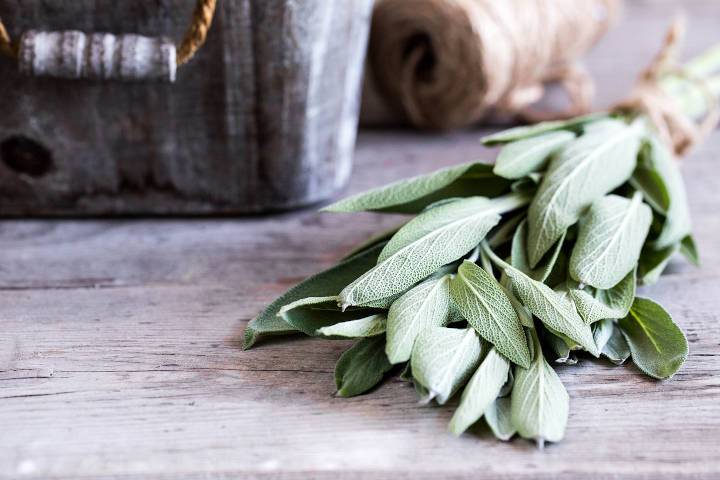Overheating in the summer can be a problem at the best of times, but if you are menopausal and having hot flushes, night sweats and feeling hormonally angry, it can be that bit more debilitating. Here's what could help.
🕒 5 min read
Head off hot flushes
Hot flushes are one of the most common – and visible – signs of menopause. Sadly, the stock image of a sweaty woman in front of a fan or an open fridge has led to them being treated as a bit of a joke.
Humour can help you through the experience, but it is not that funny when heat is coursing through your body causing you to sweat like a ham in plastic, your heart is pounding and your face is turning red, whilst trying to appear professional and keep it together in your day-to-day life. Flushes are not life-threatening, but they can make you self-conscious and interfere with the quality of your life.
The most effective way to deal with them is by taking HRT, but many women either don't want to or can't take it, so what are the other options? At the first sign of a flush coming on Consultant Gynaecologist Tania Adib from The Medical Chambers Kensington suggests spraying Physicool Rapid Cooling Mist, £12.99 lightly over your chest and neck for an instant cooling effect.
A useful bit of kit is a 'necklace fan'– pretty much a personal air con system that blasts cool air around your neck to cool you down efficiently and quickly. Keep an eye out too for a wristband currently in development that aims to track your body temperature to detect, and head off, a hot flush.
Cool stuff
Even slight increases in your core body temperature can potentially trigger flushes, so it makes sense to try to keep as cool as you can. Sit in the shade rather than the full glare of the sun if you are outdoors; take a tepid shower or bath not a hot one; keep your moisturiser and/or body lotion in the fridge; and invest in an electric fan and/or keep your windows open.
There are also a range of temperature-controlling fabrics (including Become clothing) which can be used day and/or night to keep you cooler by regulating body temperature and wicking sweat away from your body. Substituting your duvet for a cotton sheet and thin bedspread should also help.
The best menopause supplements
The top supplements to combat menopausal symptoms naturally.
Read more
Eat to beat the internal heat
All women experience the menopause in their own way, but many find hot flushes can be triggered, or exacerbated, by certain foods – particularly spicy, very sugary or salty ones – and drinking alcohol and/or caffeine.
The type of foods we eat more of in the summer tend to make it easier to get more nutritious and water-rich foods in our diet, such as watermelon, cucumber, peaches, tomatoes and strawberries, all of which help keep you hydrated (dehydration can trigger flushes). Add in foods rich in phytoestrogens (plant compounds said to emulate the action of oestrogen in the body) like chickpeas, alfalfa sprouts, tofu, soy and sesame and pumpkin seeds to help relieve menopausal flushes.
Night-time strategies
Many of us have trouble sleeping, something exacerbated by the pandemic, but add menopausal night sweats and possibly joint pain and anxiety or depression into the mix and it becomes more of an ordeal.
To help, try and keep to a regular and consistent routine of going to bed and getting up at roughly the same time and even if you feel wiped out after a bad night resist the temptation to nap during the day. Ideally, also avoid eating or drinking too much before bedtime.
Tania Adib also recommends Patch-It Lavender Sleep Patches saying: "Many women have trouble either getting to sleep, or with waking up in the early morning, during the menopause. Put these patches (impregnated with a blend of relaxing essential oils including lavender and sage) on your feet before bed and they really help improve your sleep".
Supplementary help
There is evidence to show supplements of sage extract (described as a mild phytoestrogen) can reduce the severity and duration of hot flushes and night sweats, as well as reducing anxiety, tiredness and improving concentration and brain fog. New research (although not on menopausal women) has also shown how it can help with memory and improved recall.
There is also some evidence that black cohosh, a herb originally found in the northeastern US, helps to reduce hot flushes by stimulating oestrogen receptors in certain parts of the body.

Research has shown that sage extract can reduce the severity and duration of hot flushes and night sweats.
Manage anger, irritability and anxiety
It can be difficult to unpick whether these emotions are symptoms of hormone fluctuation or simply normal everyday responses to life. But menopause can create physical challenges that are unlikely to lead to the best of moods (sleeplessness, joint pain, brain fog, weight gain, loss of identity, anyone?)
Getting a good night's sleep and eating regularly to maintain consistent blood sugar levels should help.
Regular exercise is also beneficial, with one study showing that 50 minutes of aerobic exercise four times a week reduced mood swings, irritability and night sweats. Exercising should also help to keep your weight down and being overweight has been linked to more severe and frequent flushes.
Health psychologist and co-author of The Menopause Maze Dr Meg Arroll adds cognitive behaviour therapy (a way of substituting harmful thought patterns with more positive ones) is useful for managing negative moods and thinking.
Relax
Sometimes it's not that easy – and the past year has been a trying and unrelaxing time for everyone, with or without menopausal symptoms – but the better you manage your stress levels, the better you should manage your menopause.
How you achieve this is up to you (what is relaxing for one woman is stressful for another) but exercise seems to work pretty much universally, whether that is a country walk, a run, a bike ride, yoga or an exercise class.
Dr Arroll also suggests mindfulness (a kind of meditation that encourages us to slow down and live in the moment), and there are a range of online apps, including the popular Headspace, which can help calm an overburdened brain. If you are feeling teary or overwhelmed, just take yourself off for a few minutes and tune in on your phone or laptop.








